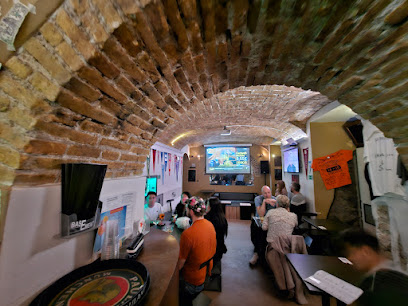
Monumento a Camillo Benso, Conte di Cavour: A Tribute to Italian Unity
Experience the grandeur of the Monumento a Camillo Benso, Conte di Cavour, a historic symbol of Italian unity in the heart of Rome.
The Monumento a Camillo Benso, Conte di Cavour is a remarkable tribute to one of Italy's founding fathers. Nestled in the heart of Rome, this stunning monument captures the essence of Italian nationalism and history. As you approach, you'll be greeted by its grandiose architecture and intricate sculptures that tell the story of Cavour's pivotal role in the unification of Italy. A must-visit for history enthusiasts and casual tourists alike, this monument offers a unique glimpse into the nation's past.
A brief summary to Monumento a Camillo Benso, conte di Cavour
- Rome, Metropolitan City of Rome Capital, 00193, IT
- Visit website
- Monday 12 am-12 am
- Tuesday 12 am-12 am
- Wednesday 12 am-12 am
- Thursday 12 am-12 am
- Friday 12 am-12 am
- Saturday 12 am-12 am
- Sunday 12 am-12 am
Local tips
- Visit early in the morning or late afternoon for fewer crowds and stunning lighting for photographs.
- Take a guided tour to fully appreciate the history and significance of the monument.
- Explore nearby attractions such as the Vittoriano and the Roman Forum for a comprehensive historical experience.
- Bring a picnic to enjoy in the nearby gardens, enhancing your visit with a relaxing break.
Getting There
-
Walking
From Passetto di Borgo, head south towards Via dei Corridori. Continue walking straight until you reach the intersection with Via delle Fornaci. Turn right onto Via delle Fornaci. Keep walking straight until you reach the end of the road, where it intersects with Piazza San Giovanni in Laterano. From there, take Via Merulana and continue walking until you reach Via Cavour. The Monumento a Camillo Benso, conte di Cavour will be located at the junction of Via Cavour and Via dei Fori Imperiali.
-
Public Transportation (Bus)
From Passetto di Borgo, walk to the nearest bus stop at Via della Conciliazione. Take Bus 40 or Bus 62 towards Termini Station. Get off at the 'Cavour' stop. From the bus stop, walk straight for about 5 minutes towards the intersection with Via dei Fori Imperiali, where you will find the Monumento a Camillo Benso, conte di Cavour.
-
Public Transportation (Metro)
Walk to the nearest metro station, Ottaviano (Line A). Take the metro towards Anagnina and get off at Termini Station. Change to Line B and take the train towards Laurentina. Get off at Cavour station. Exit the station and walk about 5 minutes towards Via dei Fori Imperiali, where the monument is located.
-
Car
If you are driving, exit the A90 ring road at the Città del Vaticano exit and follow signs towards the Vatican. Drive along Via della Conciliazione, and then turn left onto Via dei Fornaci. Continue straight until you reach Via Cavour. There are parking options available nearby, but be aware that street parking may incur additional costs.
Discover more about Monumento a Camillo Benso, conte di Cavour
Iconic landmarks you can’t miss
Lungotevere Tor di Nona
0.4 km
Discover the enchanting beauty of Lungotevere Tor di Nona, a serene riverside promenade in Rome offering stunning views and a taste of local culture.
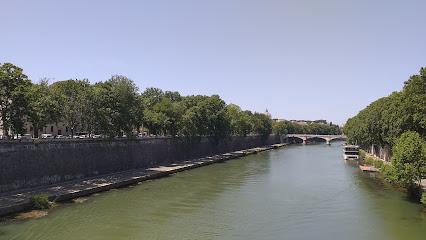
St. Angelo Bridge
0.5 km
Discover the beauty of St. Angelo Bridge, a historic landmark connecting Rome and Vatican City, with stunning views and rich history around every corner.
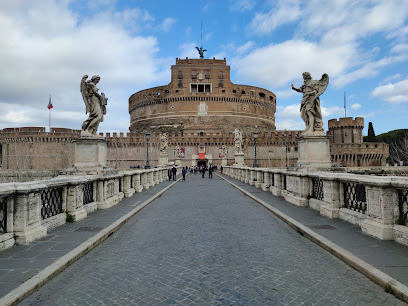
vatican nest rome
0.5 km
Discover comfort and convenience at Vatican Nest, your ideal non-smoking holiday home in the heart of Rome, just steps from iconic landmarks.
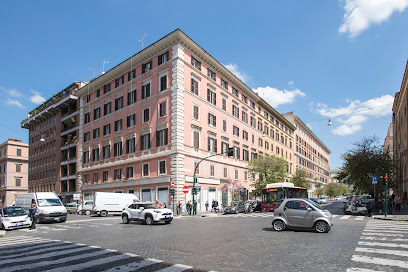
Ponte Sant'Angelo
0.5 km
Explore the enchanting Ponte Sant'Angelo, a historic bridge adorned with angelic statues, offering stunning views and a unique glimpse into Rome's rich past.
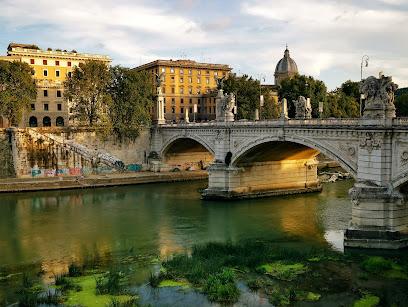
Lungotevere in Augusta
0.5 km
Experience the tranquil beauty of Lungotevere in Augusta, a scenic riverside gem in the heart of Rome, perfect for leisurely strolls and stunning views.
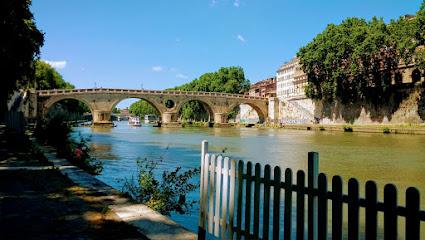
Piazza di S. Salvatore in Lauro
0.5 km
Discover the hidden gem of Piazza di S. Salvatore in Lauro, a serene square in Rome filled with history, charm, and vibrant local culture.
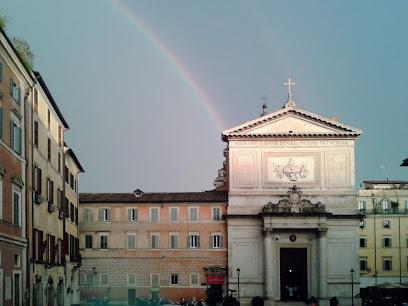
Via di Ripetta
0.5 km
Experience the enchanting Via di Ripetta, a notable street in Rome filled with history, culture, and vibrant local life.
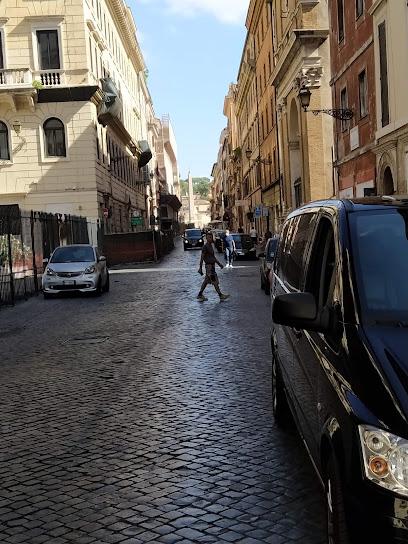
Piazza di Ponte S. Angelo
0.5 km
Experience the scenic beauty and historical significance of Piazza di Ponte S. Angelo, a picturesque square in the heart of Rome, overlooking the Tiber River.

Piazza di Ponte Sant'Angelo & Ponte Sant'Angelo
0.5 km
Discover the historic charm and breathtaking views at Piazza di Ponte Sant'Angelo, a must-see intersection in the heart of Rome.
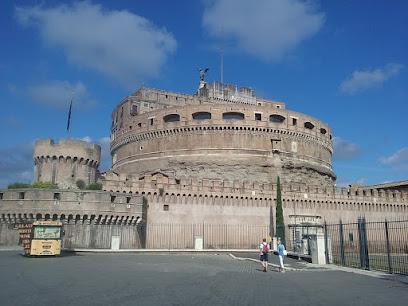
Piazza di S. Simeone
0.5 km
Discover the tranquil beauty of Piazza di S. Simeone, a hidden gem in Rome that encapsulates the charm and local culture of the Eternal City.
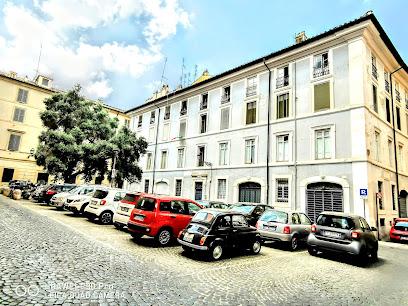
Fontana di San Simeone
0.5 km
Explore the tranquil Fontana di San Simeone in Rome, a beautiful drinking water fountain surrounded by the vibrant culture and history of the Eternal City.
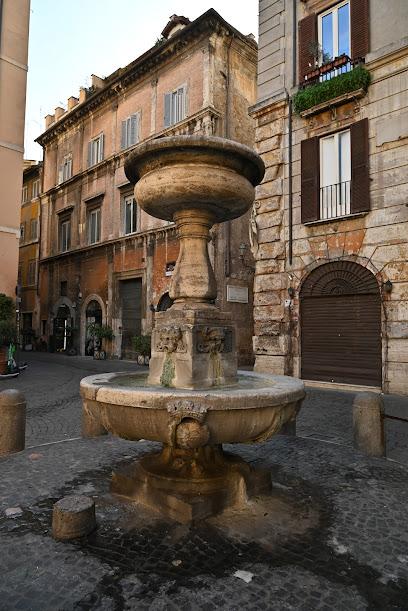
Via dei Coronari
0.5 km
Explore the historic charm of Via dei Coronari, a picturesque street in Rome lined with boutiques, cafes, and rich cultural heritage.
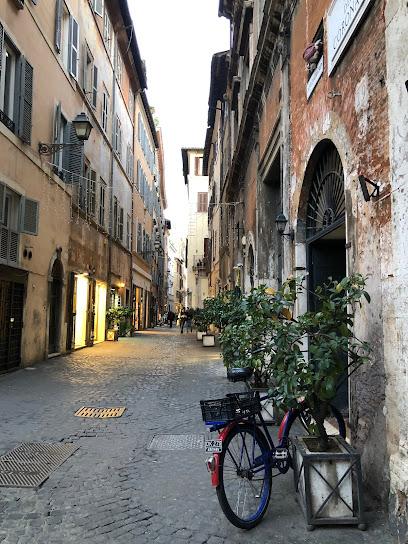
Methodist Church English Language
0.5 km
Explore the serene Methodist Church in Rome, a tranquil haven for reflection, community, and spiritual connection amidst the city's vibrant culture.
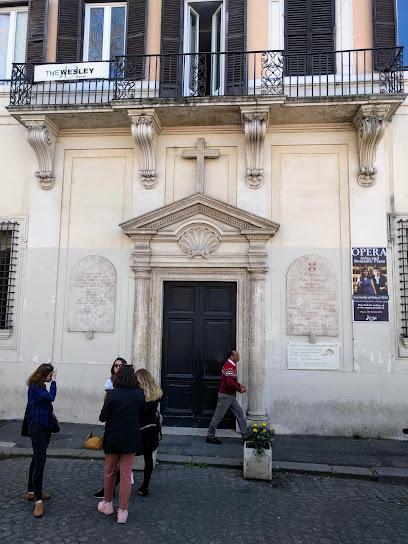
Torre della Scimmia (Tower of the Monkey)
0.5 km
Discover the charm of Torre della Scimmia, a historic tower in Rome featuring a whimsical monkey statue and rich stories waiting to be explored.
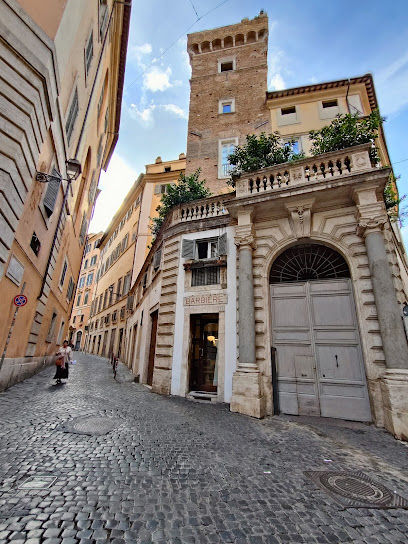
Piazza Pia
0.6 km
Discover the tranquil charm of Piazza Pia, a historical landmark in Rome, where ancient beauty meets modern-day serenity.
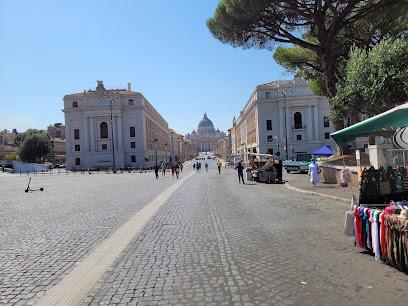
Unmissable attractions to see
Piazza Cavour
0.0 km
Explore the historic beauty and vibrant atmosphere of Piazza Cavour, a must-visit town square that embodies the spirit of Rome.
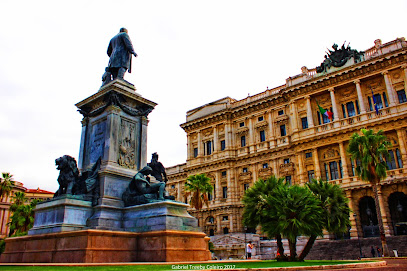
Prati
0.0 km
Experience the charm of Prati, a vibrant neighborhood in Rome known for its stunning architecture, delightful cafes, and proximity to the Vatican City.
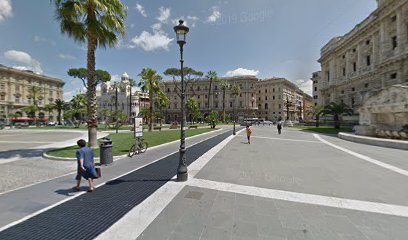
Corte Suprema di Cassazione
0.1 km
Discover the majestic Corte Suprema di Cassazione, a breathtaking symbol of justice and architectural beauty in the heart of Rome's vibrant Piazza Cavour.
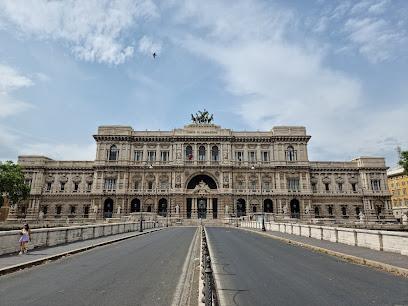
Fountains of the Palace of Justice
0.2 km
Discover the breathtaking Fountains of the Palace of Justice, a historical landmark embodying Rome's architectural brilliance and cultural heritage.
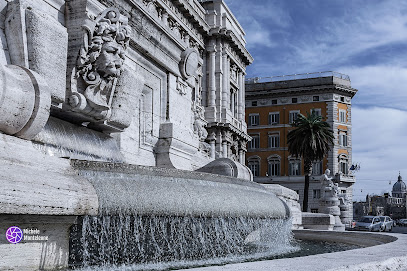
Statua Lucio Licino Crasso
0.2 km
Explore the Statua Lucio Licino Crasso, a captivating historical landmark in Rome that honors the legacy of an influential Roman general.
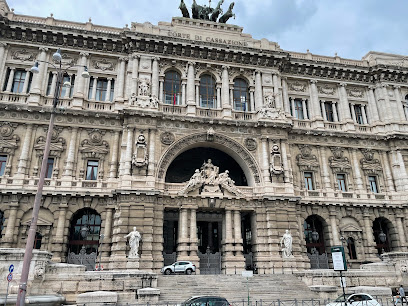
Museo Delle Anime Del Purgatorio
0.3 km
Discover the profound stories of the souls in purgatory at the Museo Delle Anime Del Purgatorio in Rome, a unique museum dedicated to the afterlife.
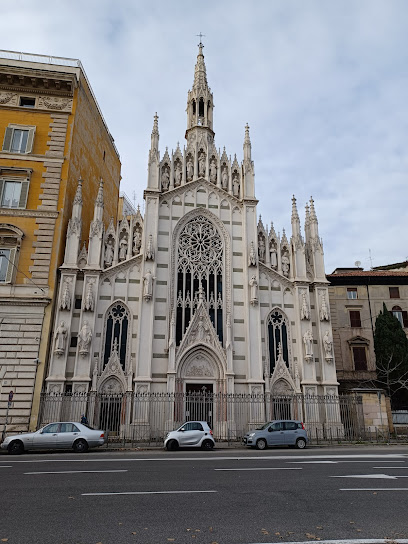
Chiesa Sacro Cuore del Suffragio
0.3 km
Discover the serene beauty of Chiesa Sacro Cuore del Suffragio, a hidden gem in Rome offering tranquility and stunning architecture.
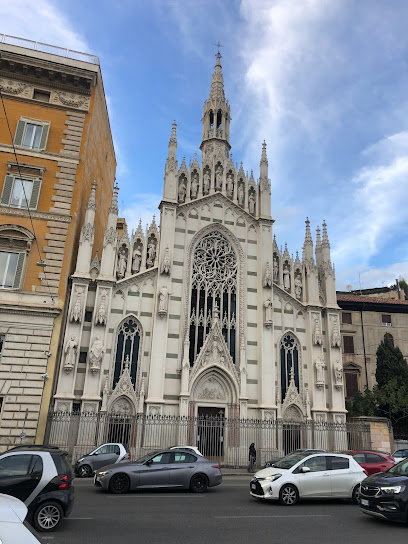
Bastione San Luca
0.3 km
Explore the rich history and stunning architecture of Bastione San Luca, a hidden gem along the Tiber River in Rome's historic landscape.
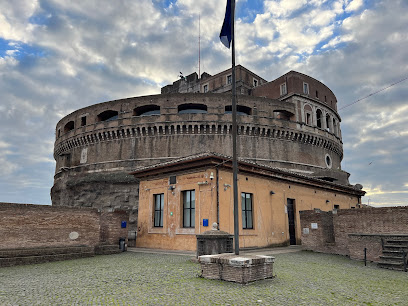
Raphael Tours & Events - Guided Tours and Experiences
0.3 km
Discover the magic of Rome with Raphael Tours & Events, where unforgettable guided tours and unique experiences await every traveler.
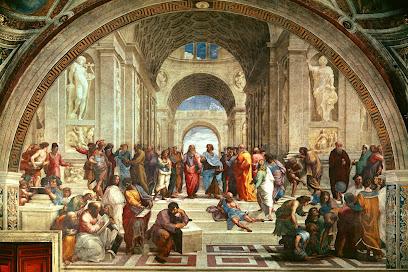
Ponte Umberto I
0.3 km
Discover the architectural beauty and stunning views of Ponte Umberto I, an iconic bridge in the heart of Rome, Italy.
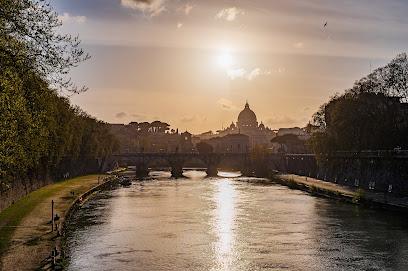
Parco della Mole Adriana
0.3 km
Explore Parco della Mole Adriana: A serene garden in Rome with stunning Vatican views and lush landscapes, perfect for relaxation and leisurely strolls.
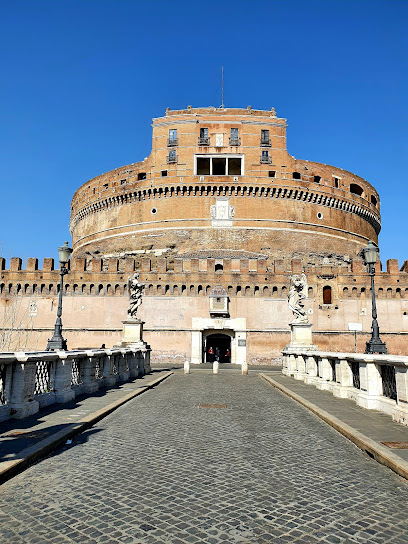
Vista sulla Basilica di San pietro
0.4 km
Capture unforgettable moments at the stunning Vista sulla Basilica di San Pietro, a must-see viewpoint in the heart of Rome.
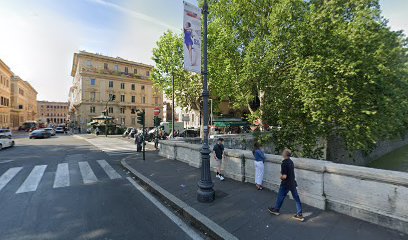
Bastione San Giovanni
0.4 km
Explore the historic Bastione San Giovanni in Rome, where ancient architecture meets breathtaking views along the Tiber River.
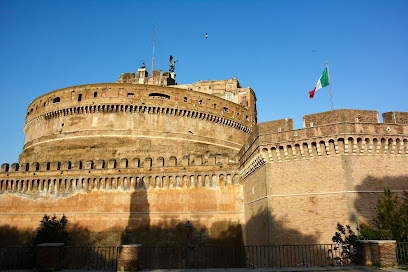
Castel Sant'Angelo
0.4 km
Discover Castel Sant'Angelo, a breathtaking castle in Rome blending rich history, stunning architecture, and panoramic views of the Eternal City.

Bastione San Marco
0.4 km
Discover the rich history and breathtaking views at Bastione San Marco, a must-visit historical landmark in the heart of Rome.
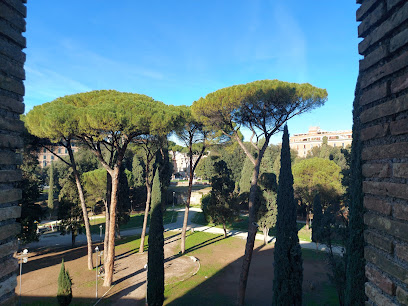
Essential places to dine
Carter Oblio
0.2 km
Experience exquisite Italian dining at Carter Oblio in Rome – where tradition meets innovation in every dish.
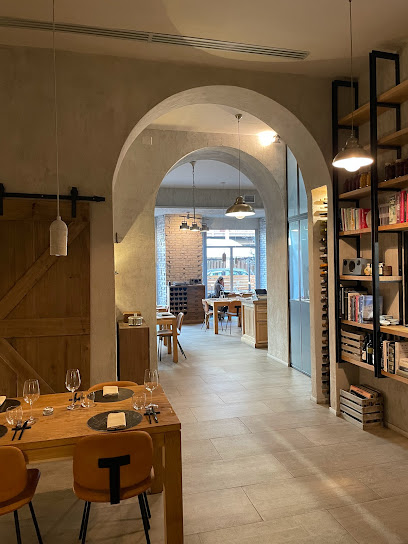
Il Convivio Troiani
0.5 km
Experience exquisite seafood and fine dining at Il Convivio Troiani in Rome—where culinary artistry meets Italian tradition.
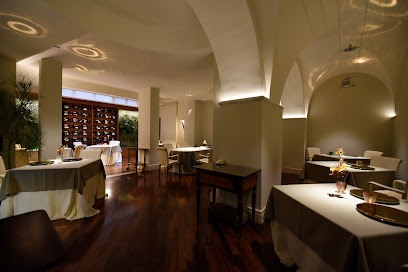
Old Bear
0.5 km
Discover authentic Italian flavors at Old Bear, a cozy bistro in Rome offering traditional dishes and exceptional service.
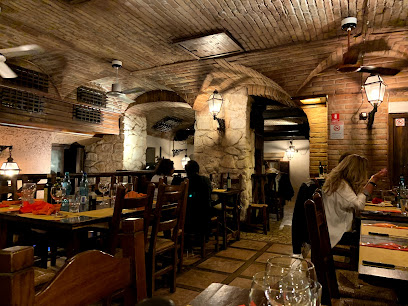
Retrobottega
0.6 km
Discover Retrobottega: A delightful fusion of traditional Italian cuisine and innovative dining experiences in the heart of Rome.
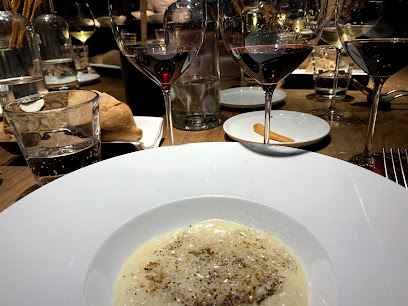
Ristorante Santa Lucia
0.6 km
Discover authentic Italian cuisine at Ristorante Santa Lucia near Piazza Navona - where flavors meet history in beautiful Rome.
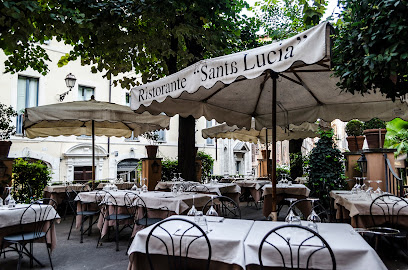
J.K. Cafe
0.6 km
Experience exquisite dining at J.K. Cafe in Rome - where traditional flavors meet modern elegance.
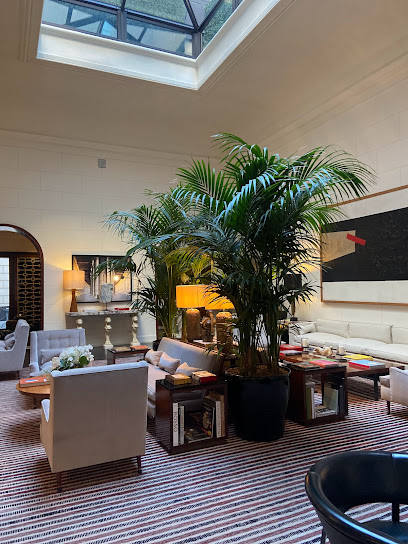
Ristorante Ad Hoc
0.6 km
Discover Ristorante Ad Hoc: A culinary delight in Rome offering authentic Italian cuisine and an unforgettable dining atmosphere.
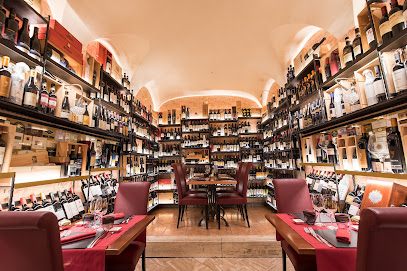
Il Tagliere Toscano navona
0.6 km
Discover authentic Tuscan flavors at Il Tagliere Toscano Navona - a must-visit restaurant in Rome's historic Piazza Navona.
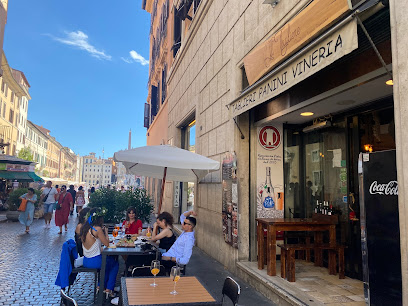
CiPASSO
0.6 km
Experience authentic Italian dining at CiPASSO in Rome – where tradition meets innovation in every delectable dish.
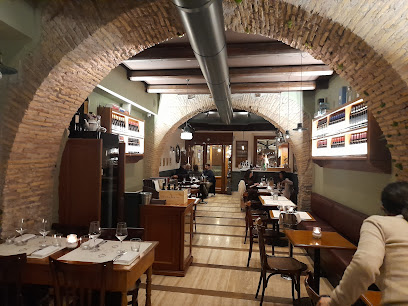
Rione XIV Bistrot
0.6 km
Experience the essence of Roman cuisine at Rione XIV Bistrot, where tradition meets culinary excellence in every bite.
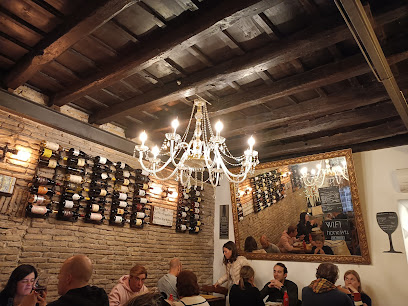
Bernini
0.6 km
Discover authentic Italian flavors at Bernini in Piazza Navona – where culinary excellence meets Roman charm.
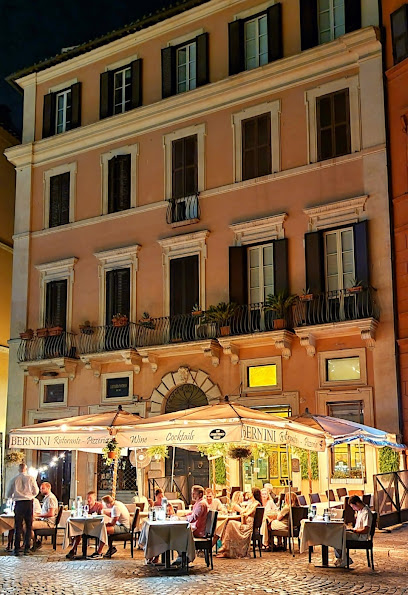
Borghiciana Pastificio Artigianale
0.6 km
Discover the authentic taste of Rome at Borghiciana Pastificio Artigianale, where artisanal pasta meets traditional flavors in a charming setting.
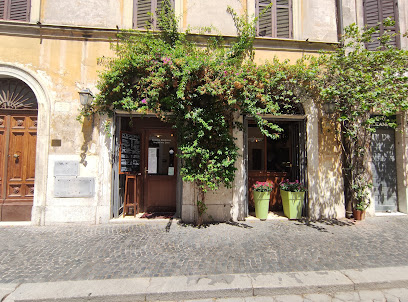
Tre Pupazzi Restaurant
0.7 km
Experience the fusion of Portuguese and Italian flavors at Tre Pupazzi Restaurant in Rome's enchanting atmosphere.
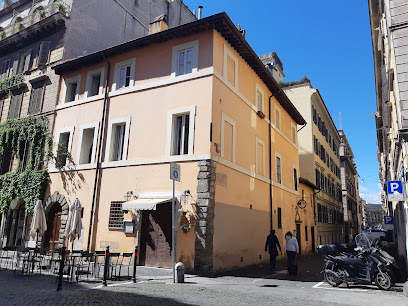
Mama Eat Lab
0.7 km
Discover Mama Eat Lab: An authentic Italian restaurant near Vatican City specializing in gluten-free dishes and delicious pizzas.
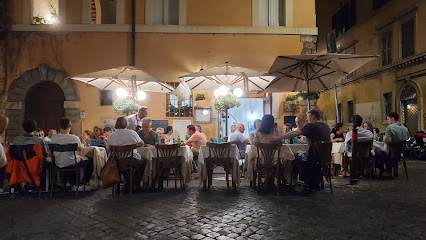
4 Fiumi - Piazza Navona
0.7 km
Experience authentic Italian cuisine at 4 Fiumi in Piazza Navona—where culinary tradition meets vibrant Roman culture.
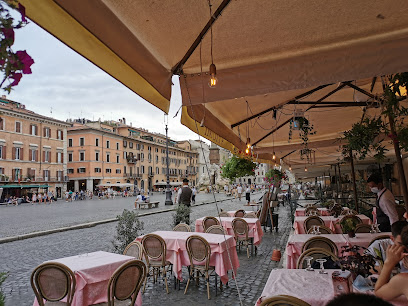
Markets, malls and hidden boutiques
M & P srl
0.4 km
Discover unique Roman souvenirs and artisanal treasures at M & P srl, the perfect gift shop for tourists in the heart of Rome.
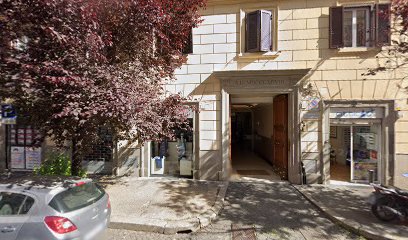
New Old
0.5 km
Discover unique souvenirs and artisanal treasures at New Old, the charming gift shop in the heart of Rome that captures Italian craftsmanship.

Kouki Masks Venice Souvenir Shop
0.5 km
Explore Kouki Masks, a unique souvenir shop in Venice, offering exquisite handmade masks and authentic Venetian treasures for every traveler.
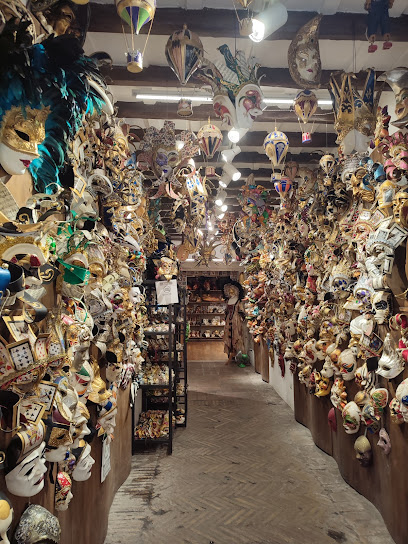
Casa Elfrida
0.5 km
Discover unique fashion accessories at Casa Elfrida in Rome, where Italian craftsmanship meets modern style for the perfect souvenir.
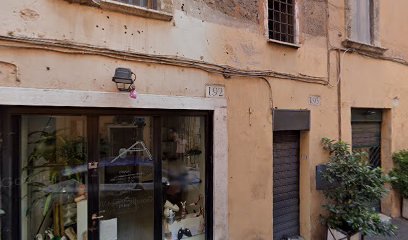
Florence Moon
0.5 km
Explore Florence Moon, a charming leather goods store in Rome, offering handcrafted Italian leather products that reflect tradition and artistry.
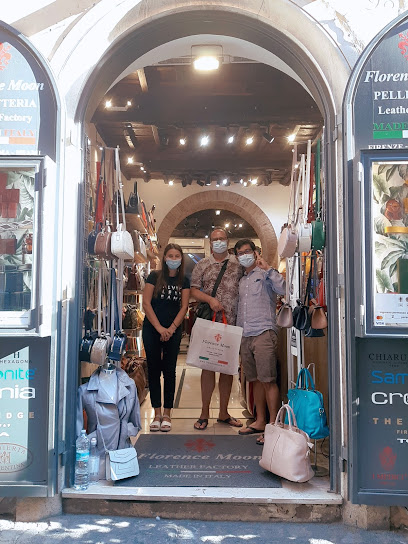
Rome Duck Store
0.5 km
Explore the enchanting Rome Duck Store for a memorable toy shopping experience in the heart of the Eternal City, perfect for all ages.

Audrey Shop - Ladies New Fashion - Clothes
0.6 km
Discover unique vintage and contemporary ladies' fashion at Audrey Shop, a hidden gem in the heart of Rome's historic streets.
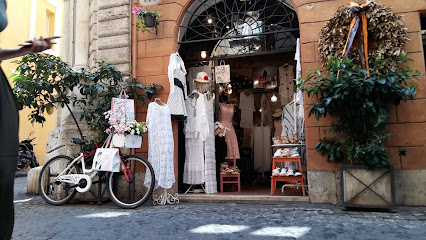
Maledetti Toscani Roma
0.6 km
Explore Maledetti Toscani Roma for exquisite Italian leather goods, where craftsmanship and style converge in the heart of Rome.

Salvatore Sorrentino Roma
0.6 km
Discover handcrafted Italian leather goods at Salvatore Sorrentino Roma, where luxury meets artistry in the heart of Rome.

Cursed Tuscans Rome
0.6 km
Explore Cursed Tuscans Rome for exquisite leather goods and unique t-shirts in a charming Roman boutique known for its exceptional craftsmanship.
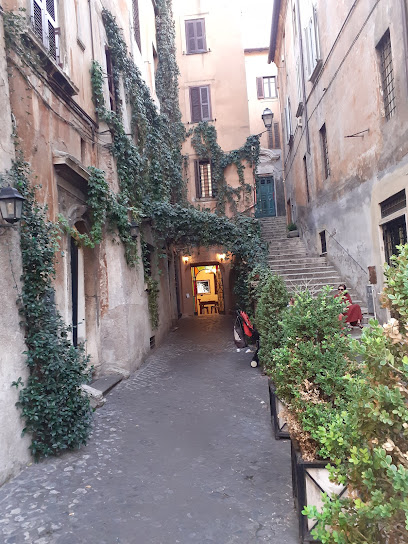
Termini
0.6 km
Explore Termini Gift Shop in Rome for unique souvenirs and handcrafted treasures that embody the spirit of Italian culture.
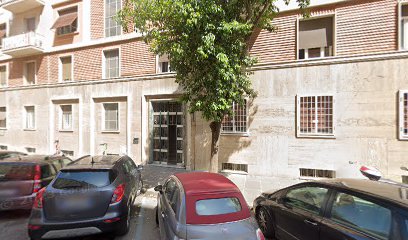
souvenir shop
0.6 km
Explore a charming souvenir shop in Rome offering unique gifts, local art, and authentic Italian crafts to capture the essence of your journey.
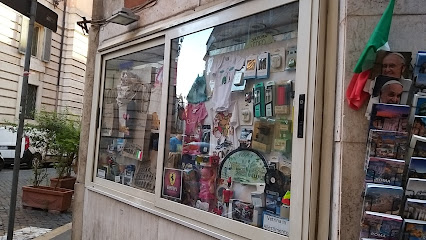
Boutique souvenir
0.6 km
Discover unique souvenirs and handcrafted treasures in this charming boutique shop, capturing the spirit of Rome for every traveler.
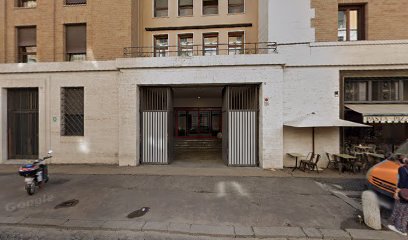
Happy Shop
0.6 km
Discover unique souvenirs and artisan gifts at Happy Shop, your go-to destination for memorable keepsakes in the heart of Rome.
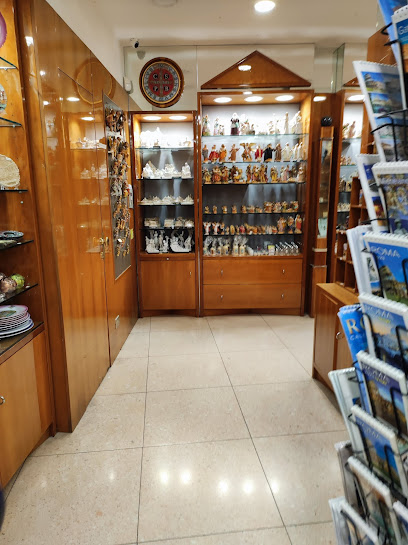
Al Sogno - GIOCATTOLI, BAMBOLE e PELUCHE
0.6 km
Explore Al Sogno in Piazza Navona, a delightful gift shop and toy store offering a magical selection of toys, dolls, and plush animals in the heart of Rome.
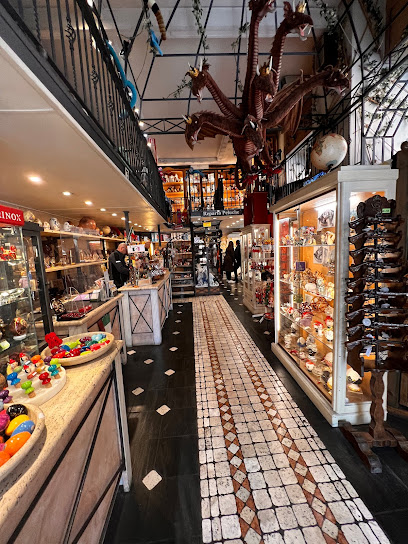
Essential bars & hidden hideouts
Morrison's
0.2 km
Discover the charm of Ireland at Morrison's, a lively pub in Rome serving delicious food and drinks in a welcoming atmosphere.
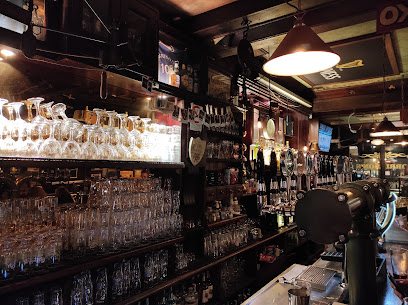
Biblio Bar Roma
0.3 km
Experience the perfect blend of literature and relaxation at Biblio Bar Roma, a unique café and cocktail bar in the heart of Rome.
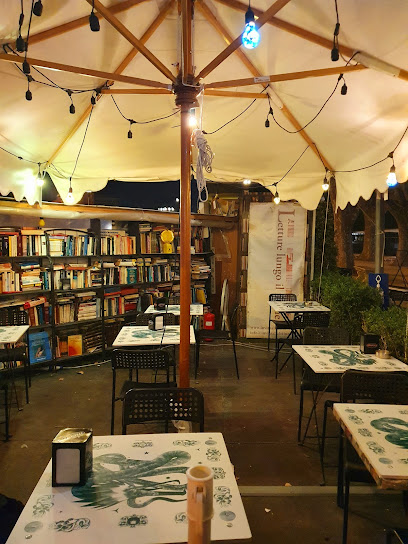
Caffetteria Ristorante Le Terrazze Castel Sant’Angelo
0.4 km
Discover the perfect blend of exquisite Italian cuisine and breathtaking views at Caffetteria Ristorante Le Terrazze, a must-visit in Rome.
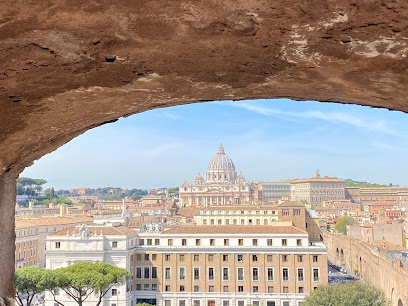
Caffè di Porta Castello
0.6 km
Experience authentic Italian flavors at Caffè di Porta Castello, a cozy restaurant near the Vatican, perfect for tourists seeking delightful cuisine.
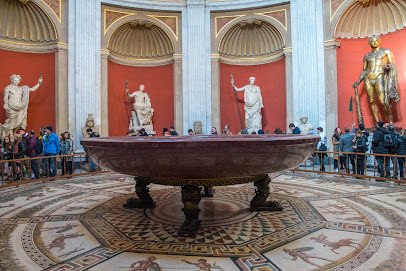
Resto Via della Traspontina,
0.6 km
Experience the flavors of Rome at Resto Via della Traspontina, a charming gastropub offering authentic Italian cuisine in a cozy setting.
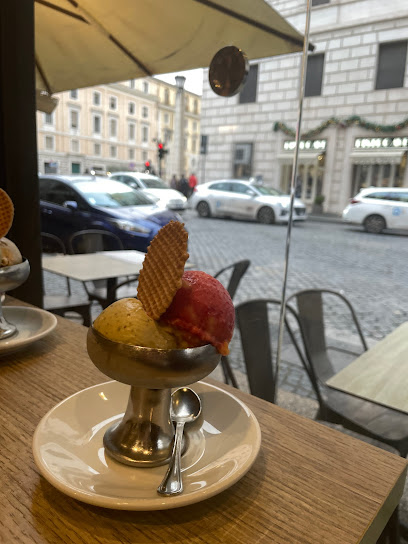
Terrazza Les Étoiles Roma
0.6 km
Experience breathtaking views and exquisite cuisine at Terrazza Les Étoiles, Rome's premier rooftop restaurant and bar for unforgettable moments.
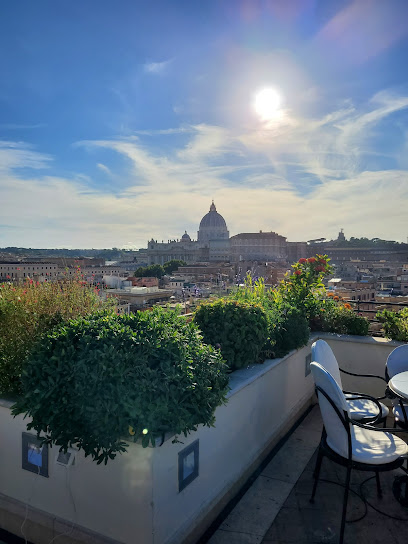
Roof Garden & Bar
0.7 km
Discover the enchanting views and exquisite cocktails at Rome's Roof Garden & Bar, a must-visit for every traveler seeking elegance.
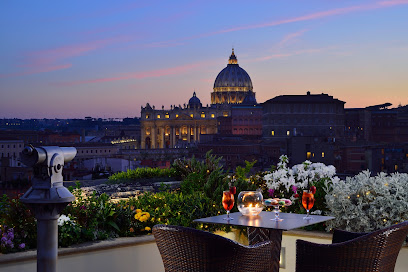
Drink Art Gallery
0.7 km
Discover the Drink Art Gallery in Rome, where cocktail artistry meets creative expression in a vibrant bar setting.
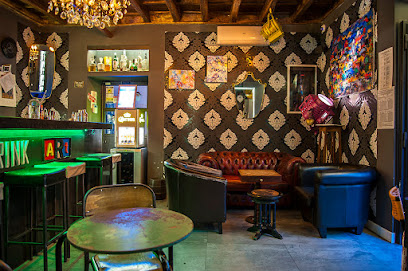
Ristorante Bar del Fico
0.7 km
Experience the essence of Rome at Ristorante Bar del Fico, where delicious Italian cuisine meets vibrant cocktails in a charming atmosphere.
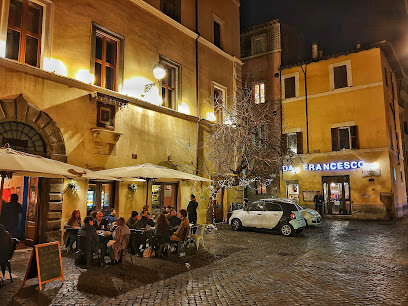
Mons
0.7 km
Discover Mons, a vibrant pub in Rome offering delicious cocktails, hearty hamburgers, and an unforgettable atmosphere perfect for tourists.
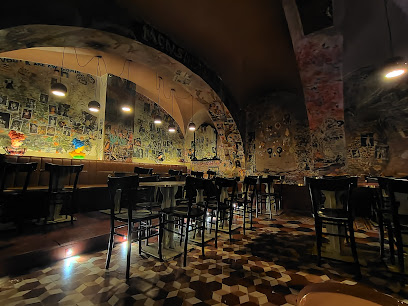
Ginny | Cocktail Bar | Wine Bar | Ristorante
0.7 km
Discover Ginny in Rome: a vibrant cocktail bar and restaurant offering exquisite drinks and a taste of local Italian cuisine.
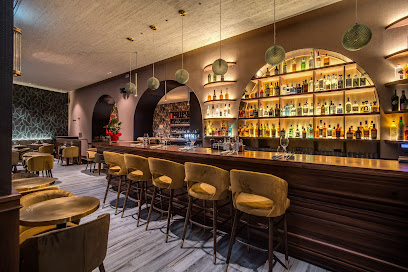
Vita Cocktail Bar
0.7 km
Discover the vibrant nightlife of Rome at Vita Cocktail Bar, where expertly crafted cocktails meet an inviting atmosphere.

Bar Navona
0.7 km
Experience the vibrant atmosphere of Bar Navona in Rome's historic Piazza Navona, where local culture meets delightful refreshments.
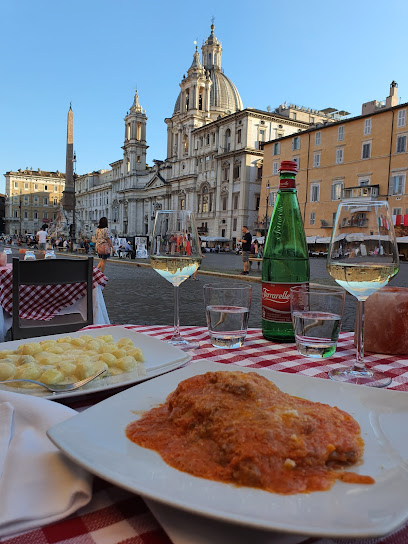
L'Emporio alla Pace
0.7 km
Experience the charm of L'Emporio alla Pace, where every sip transports you deeper into the heart of Rome's vibrant café culture.
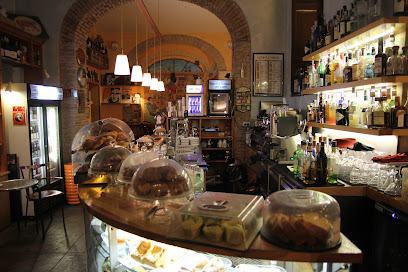
The Basement - Pub. Cocktail Bar. Events
0.7 km
Explore The Basement in Rome: A vibrant pub and cocktail bar offering an unforgettable nightlife experience in the heart of the city.
